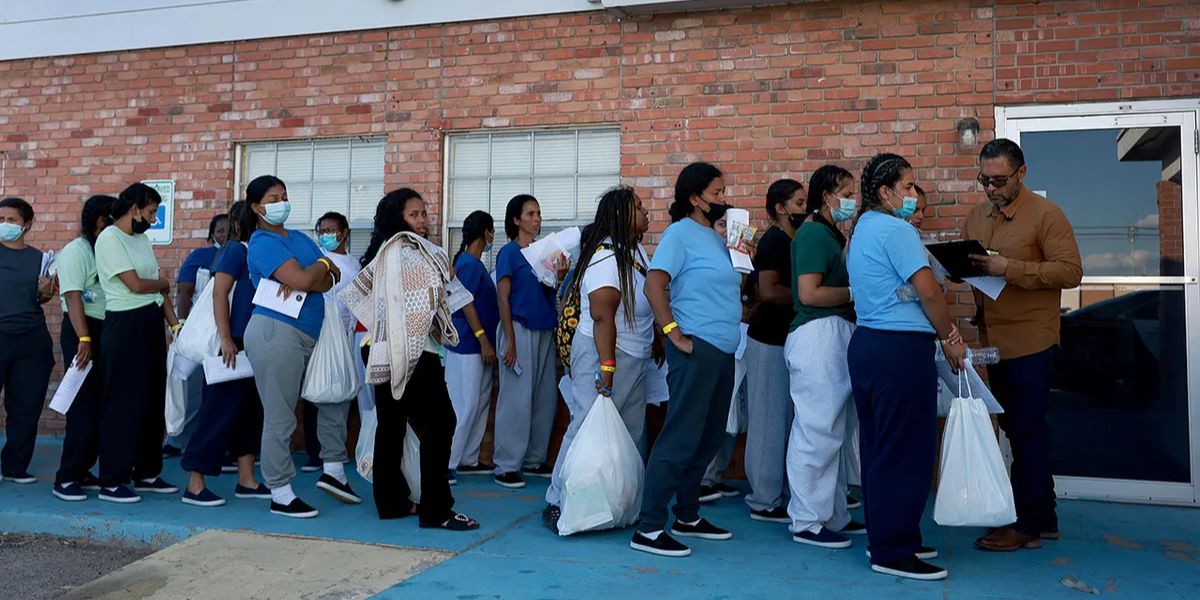El Paso, TX – In the wake of trauma, whether from violence, loss, or a natural disaster, communities often struggle to find a way forward. In El Paso, a growing number of organizations, schools, healthcare providers, and law enforcement agencies are using trauma-informed training to better understand the effects of trauma and create environments that promote healing, safety, and resilience.
This approach, which focuses on understanding, recognizing, and responding to the impact of trauma, has become a cornerstone of community recovery efforts. By equipping individuals and organizations with the knowledge and tools to support trauma survivors, El Paso is building a trauma-resilient community that helps individuals heal and move forward together.
Table of Contents
What is Trauma-Informed Training?
Trauma-informed training equips professionals and community members with the knowledge of how trauma affects the brain and behavior. It emphasizes creating safe, supportive spaces for those who have experienced trauma. This type of training is based on the understanding that trauma impacts people differently, often influencing how they respond to stress, communicate, and interact with others.
The core principles of trauma-informed care include:
- Safety: Ensuring that people feel physically and emotionally safe in the environment.
- Trustworthiness: Building trust through transparent, consistent, and respectful interactions.
- Choice: Empowering individuals by offering choices and supporting autonomy.
- Collaboration: Fostering shared decision-making and respecting everyone’s role in the healing process.
- Empowerment: Recognizing and building on individuals’ strengths and resilience.
This framework can be applied in a variety of settings, including schools, social services, healthcare, law enforcement, and community organizations.
How Trauma-Informed Training is Helping El Paso
El Paso, like many communities affected by violence and trauma, has faced the challenge of healing from deep emotional wounds. However, through trauma-informed training, the city is learning how to shift its focus from simply responding to trauma to proactively preventing harm and fostering an environment of healing and recovery.
Training for Educators and School Staff
Schools are often the first place children and adolescents express the effects of trauma, whether it’s through behavioral problems, withdrawal, or academic struggles. In response, El Paso Independent School District (EPISD) and other local schools have implemented trauma-informed practices to support students affected by violence.
Teachers, counselors, and administrators receive training on identifying trauma responses and how to engage with students in a way that promotes safety, trust, and support. For example, students who experience trauma may have trouble concentrating, acting out, or showing signs of distress during class. With trauma-informed training, school staff can provide a more empathetic, patient, and nurturing environment that helps students regain emotional balance.
“We’ve seen incredible changes in students who’ve experienced trauma. When educators understand the impact of trauma, they can respond in ways that don’t escalate the situation but instead provide support,” says Jessica Lopez, a school counselor in El Paso.
Training for Law Enforcement and First Responders
When responding to a crisis, law enforcement officers and first responders often encounter individuals who have experienced intense trauma. Recognizing trauma responses, such as confusion, dissociation, or anger, can make a difference in how officers de-escalate situations.
El Paso law enforcement agencies, in partnership with local nonprofits, have embraced trauma-informed law enforcement practices. Officers are trained to recognize signs of trauma and are taught to interact with individuals in a way that promotes emotional safety and cooperation. This approach has led to improved relationships between officers and residents, particularly in communities affected by crime or historical mistrust of law enforcement.
Healthcare and Social Services: Supporting Survivors of Violence
Healthcare providers and social workers are also benefiting from trauma-informed training. These professionals are often the first to interact with survivors of violence, and their response can have a lasting impact on a survivor’s healing process.
Local organizations such as CASFV (Center Against Sexual and Family Violence) and The Borderland Immigrant Support Network provide training for healthcare workers, mental health professionals, and social service providers on the effects of trauma and how to engage with clients without re-traumatizing them.
By creating safe spaces where survivors feel heard and supported, healthcare providers help break the cycle of trauma and offer critical resources for healing. The focus is on empowering survivors to take an active role in their recovery rather than making them feel powerless or blamed.
Community-Based Support and Healing
The healing process doesn’t just happen in schools, hospitals, or law enforcement settings — it happens in the community. Community organizations like Project Vida and Familias Unidas are also adopting trauma-informed principles in their programs.
These organizations provide peer support groups, counseling services, and neighborhood healing circles, where individuals and families affected by violence can come together to share their stories, receive support, and learn how to rebuild trust. By focusing on collective healing, these programs help foster a sense of community responsibility for the well-being of others.
“It’s about more than just helping individuals,” says Rosa Hernandez, a community organizer with Project Vida. “When we approach trauma as a community issue, we create a supportive environment where everyone can heal together.”
The Impact of Trauma-Informed Practices in El Paso
Since implementing trauma-informed training across various sectors, El Paso has seen several positive outcomes, including:
- Improved community relations between law enforcement and residents.
- Better academic performance and emotional stability in students.
- Increased access to mental health services for individuals affected by violence.
- Stronger support systems for survivors of domestic violence and sexual assault.
Furthermore, community surveys and feedback from local organizations show that residents feel safer and more supported by a community that understands the effects of trauma and responds with compassion rather than judgment.
Looking Ahead: Expanding Trauma-Informed Care in El Paso
As the impact of trauma-informed training continues to unfold, El Paso leaders are working to expand these practices citywide. This includes integrating trauma-informed care into more sectors, such as public housing, juvenile justice, and employment services.
The city’s Comprehensive Trauma Recovery Program is a collaborative effort between local government, nonprofits, schools, and healthcare providers to ensure that all El Pasoans have access to the resources and support needed to heal from trauma.
By continuing to prioritize trauma-informed care, El Paso is not only helping its residents recover from the effects of violence but also building a resilient community that can withstand future challenges.
“This work is far from over, but we’re laying the foundation for a city that values healing and resilience,” says Ortega. “When trauma is met with care, communities thrive.”
What do you think?
Has trauma-informed care made a difference in your community? Share your experiences or thoughts in the comments below and learn more about how El Paso is supporting recovery at reachviolenceprevention.org.









